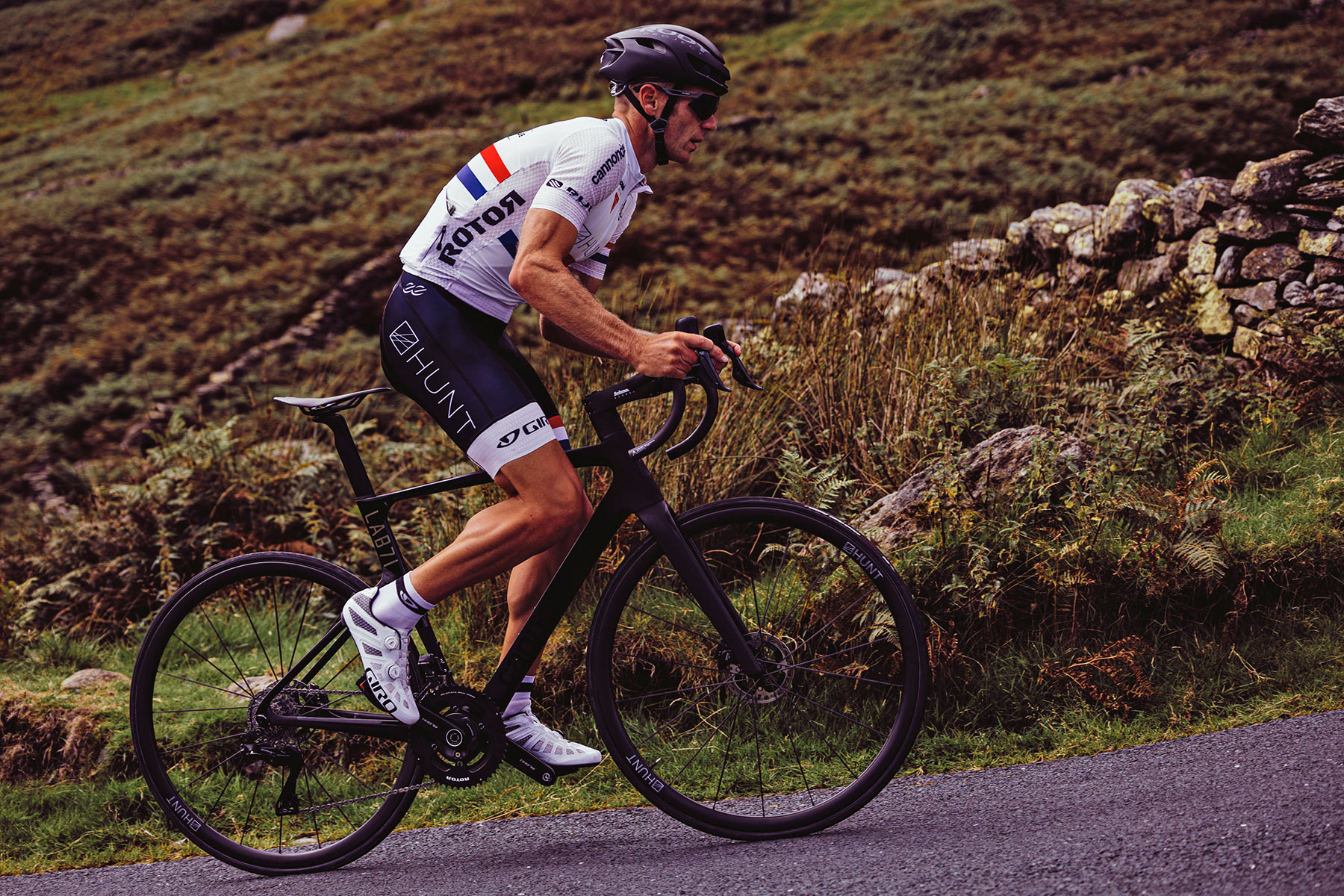When the British Hill Climb season gets underway, the weight weenies come out hunting grams to shed, and Hunt’s new sub-1kg ultralight Hill Climb SL Disc carbon tubulars might just be the perfect wheelset. Sure, we’ve all learned by now that aero is everything, and road tubeless offers the lowest rolling-resistance. But when you are just time trialing uphill, lightweight is king. And in this case, it’s hard to argue with the allure of a 963g disc brake road wheelset that weighs as little as 963g complete…
Hunt Hill Climb SL Disc carbon tubular road bike wheelset

Hunt built a name for themselves with affordable, versatile, and aerodynamic wheels – for everything from adventure riding to pro racing. But the Hunt crew are also British bike nerds too. Not to mention, one of their sponsored riders – Andrew Feather – is the 2022 British Hill Climb National Champion.
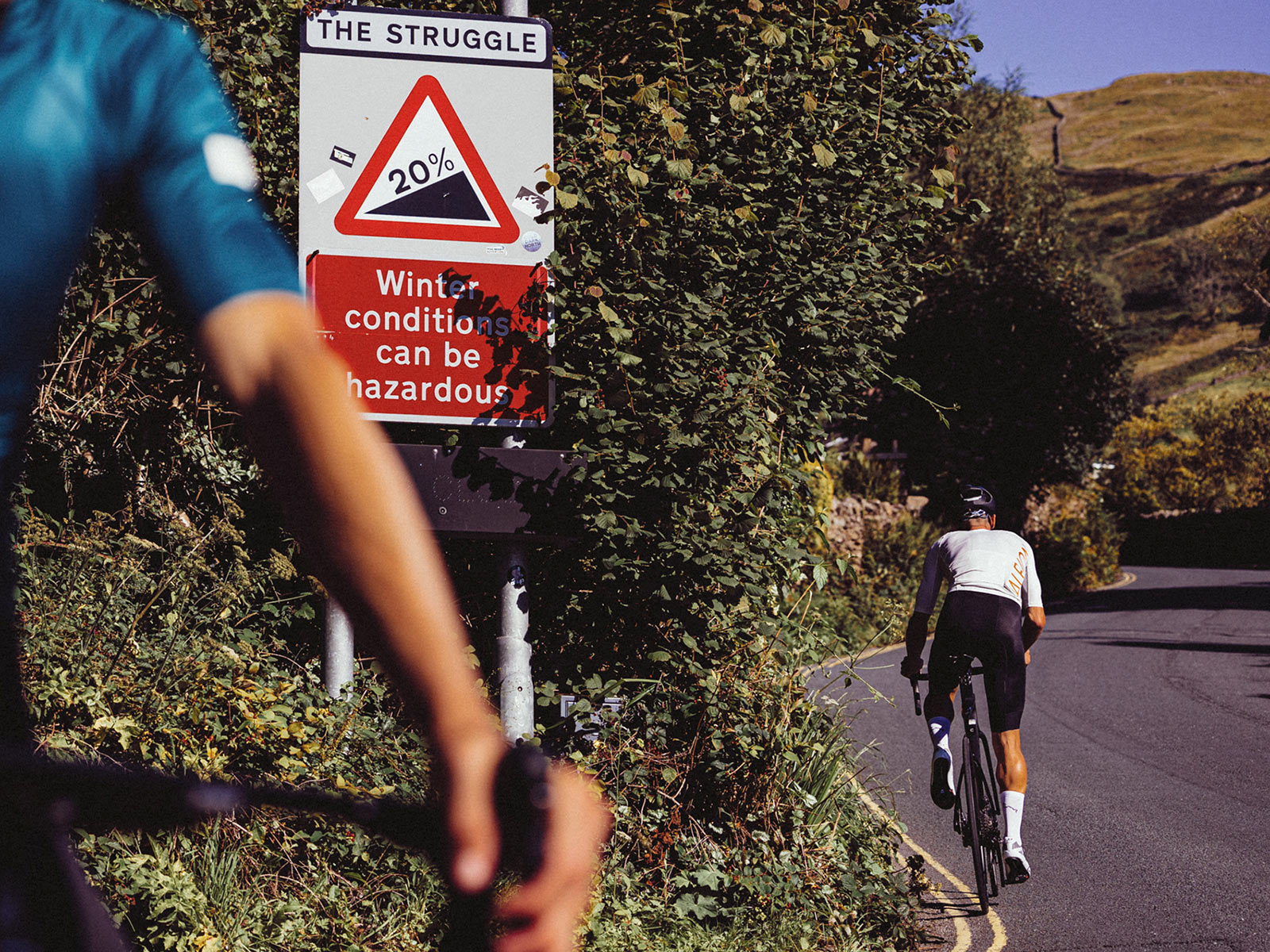
So, ahead of the 2023 British Hill Climb season, they went back to revisit their rim brake Hill Climb SL wheels from five years ago. And surprisingly, they’ve managed to shed grams.
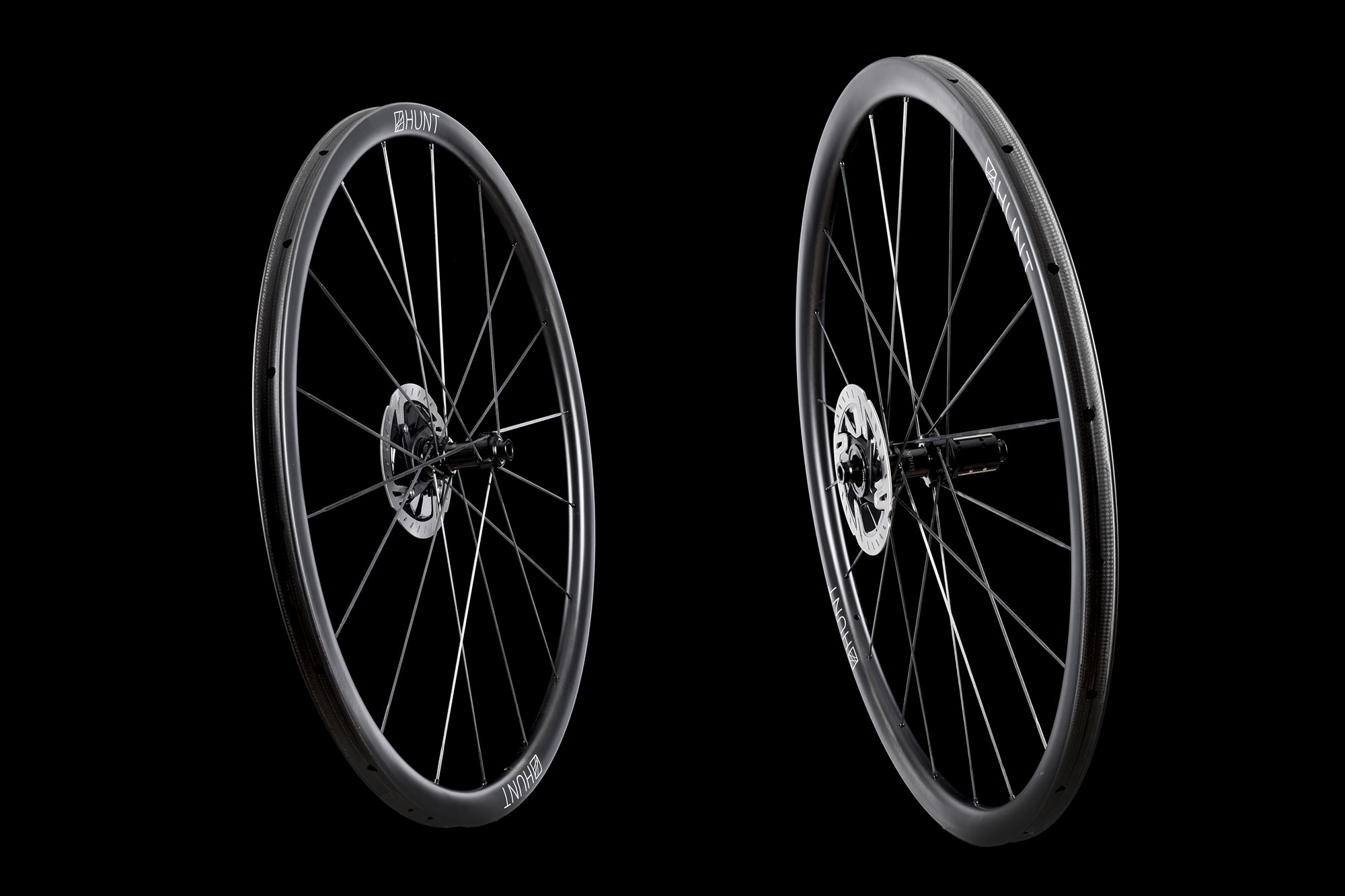
Hunt made the new tubular Hill Climb SL Disc wheels lighter, while upgrading to modern disc brake & thru-axles standards.
For when the absolute lightest weight and ultra-efficient climbing accelerations are what really matters!
What’s new?
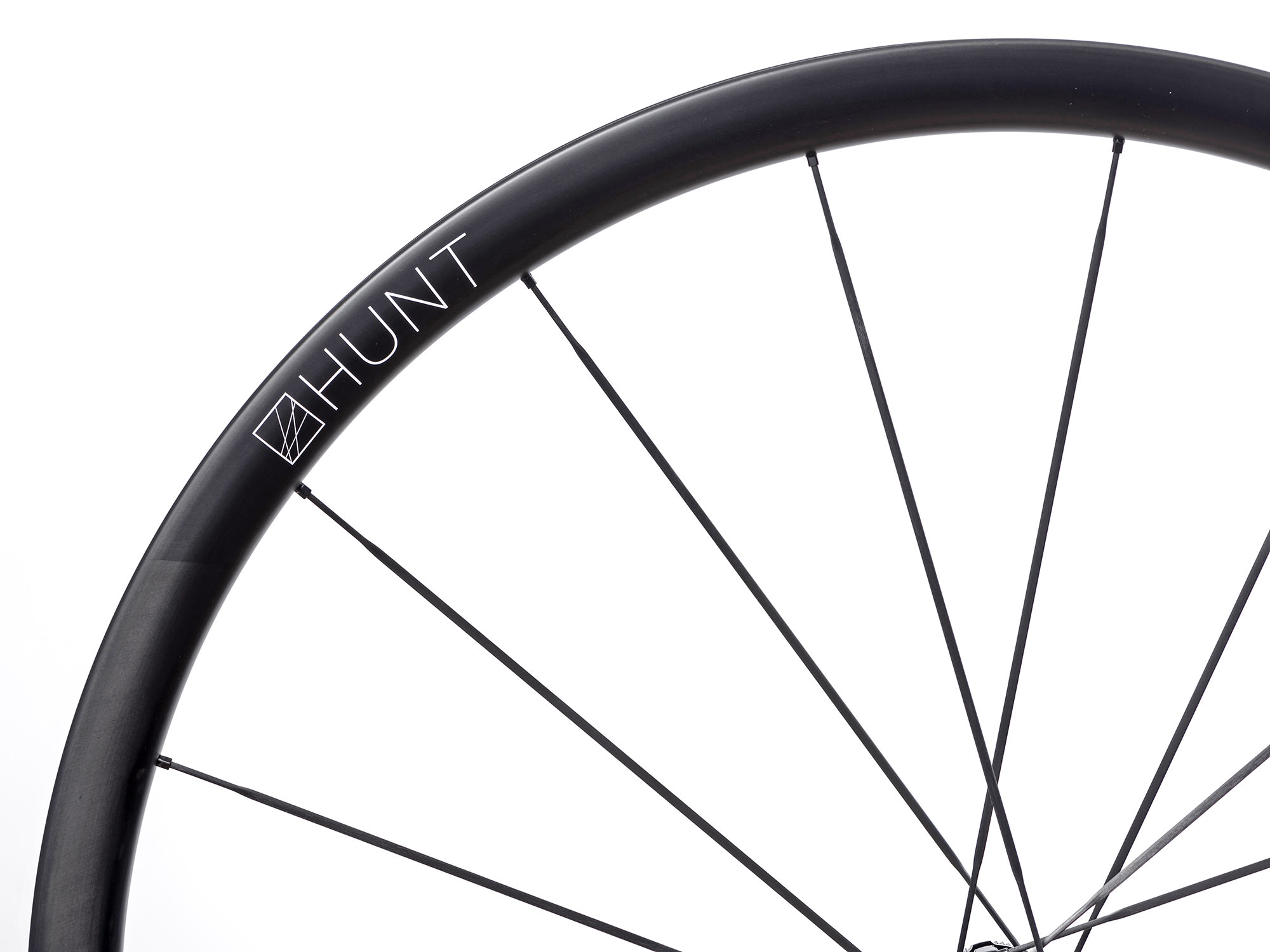
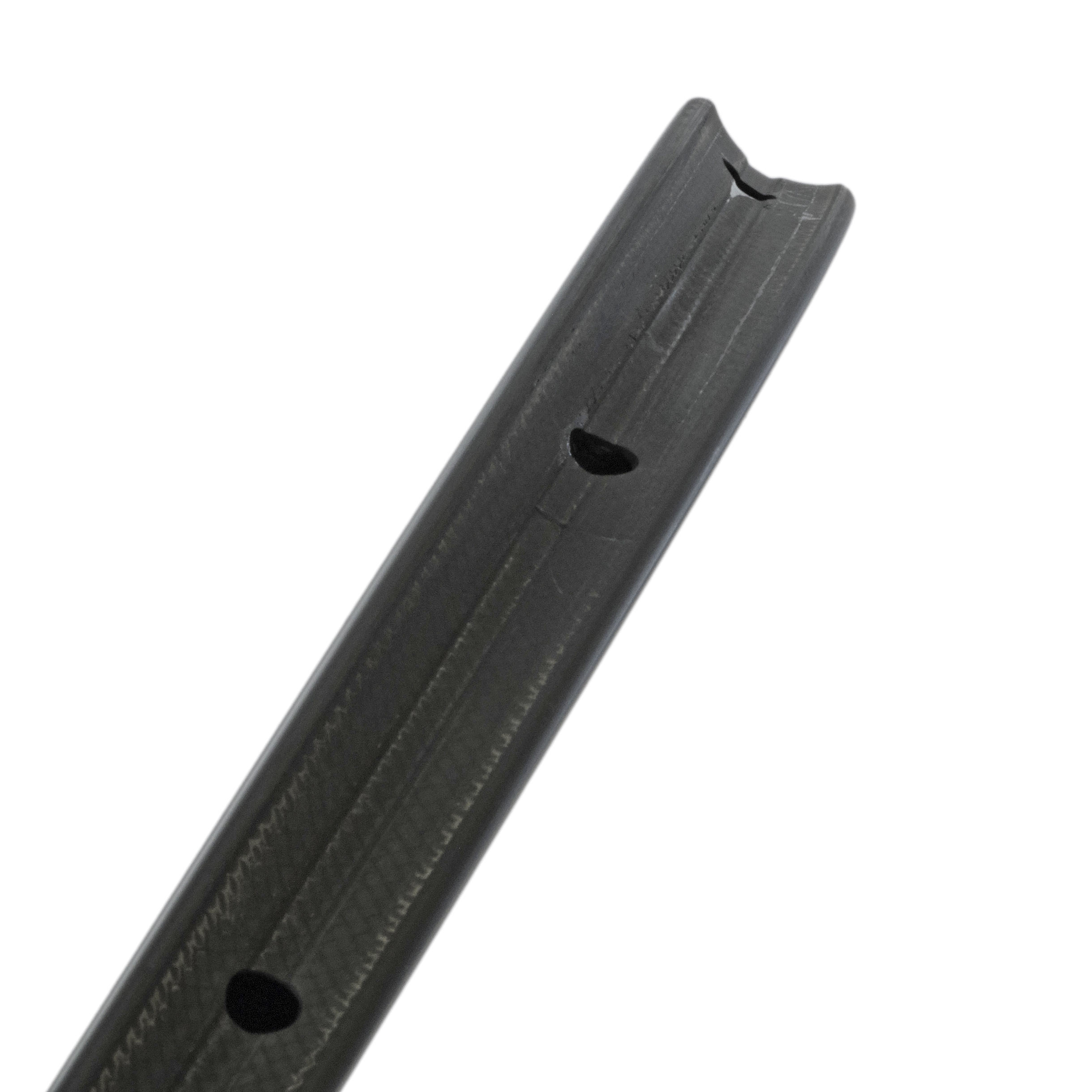
The new Hunt Hill Climb SL Disc wheels still feature a tubular carbon rim. So, you’re going to have to glue up the lightest tubs you can find.
The new carbon rims are still 30mm deep. But they grow to 26mm wide outside. That matches anything from tiny 23mm tubs up to more modern 28mm tire widths for lower rolling resistance.
Tech details
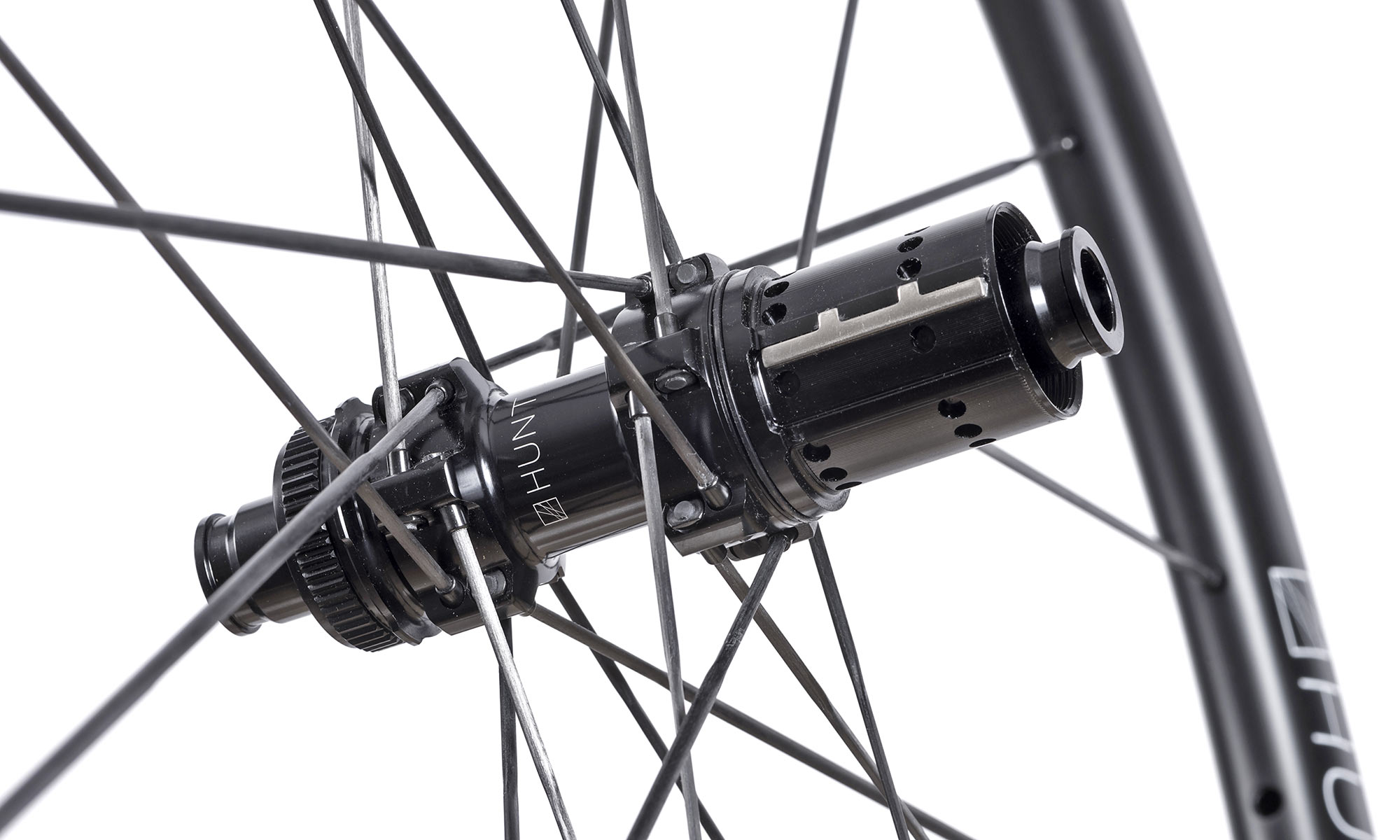
What’s also new is a switch to serviceable / true-able carbon spokes. The new disc brake Hill Climb SL wheels feature Hunt’s TaperLock UD carbon spokes. There’s 18 up front & 20 in the back. Those aero, light, stiff & strong UD carbon spokes are laced to a minimalist 6066-T6 CNC’d alloy UD SL centerlock hubset with Hunt’s first ratchet internals. A 40-tooth ratchet ring means quick 9° engagement. And a literally drilled-out alloy axle and Shimano freehub body shave even more grams without compromising strength (apparently.)
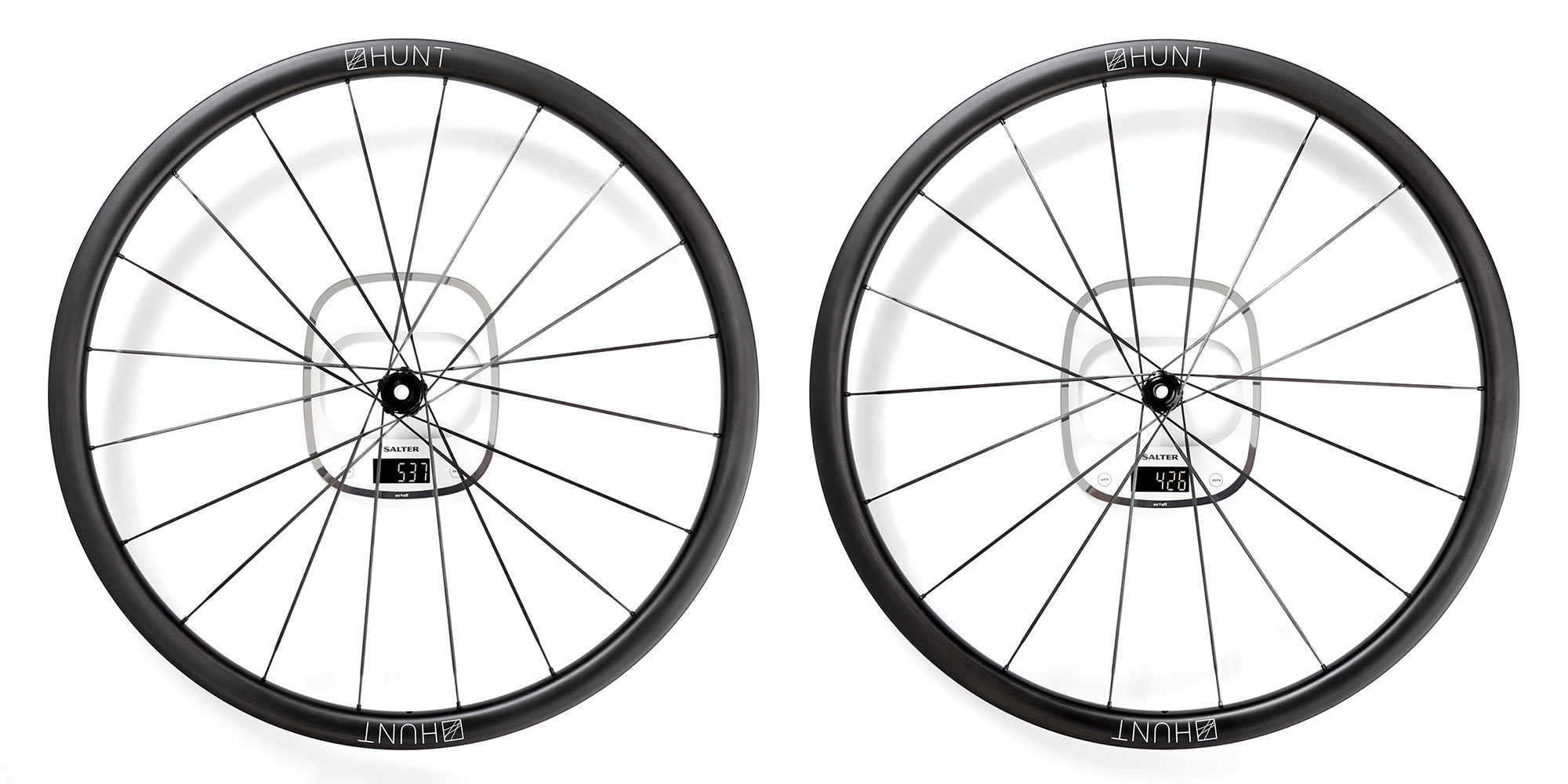
The result is a claimed wheelset weight of just 963g (426g front & 537g rear).
Just for comparison, that’s 469g or 1/3 lighter than Hunt’s existing 30 Carbon CX Disc tubular cyclocross wheels that are the same depth and 1mm narrower!
Hunt Hill Climb SL Disc – Pricing, options & availability
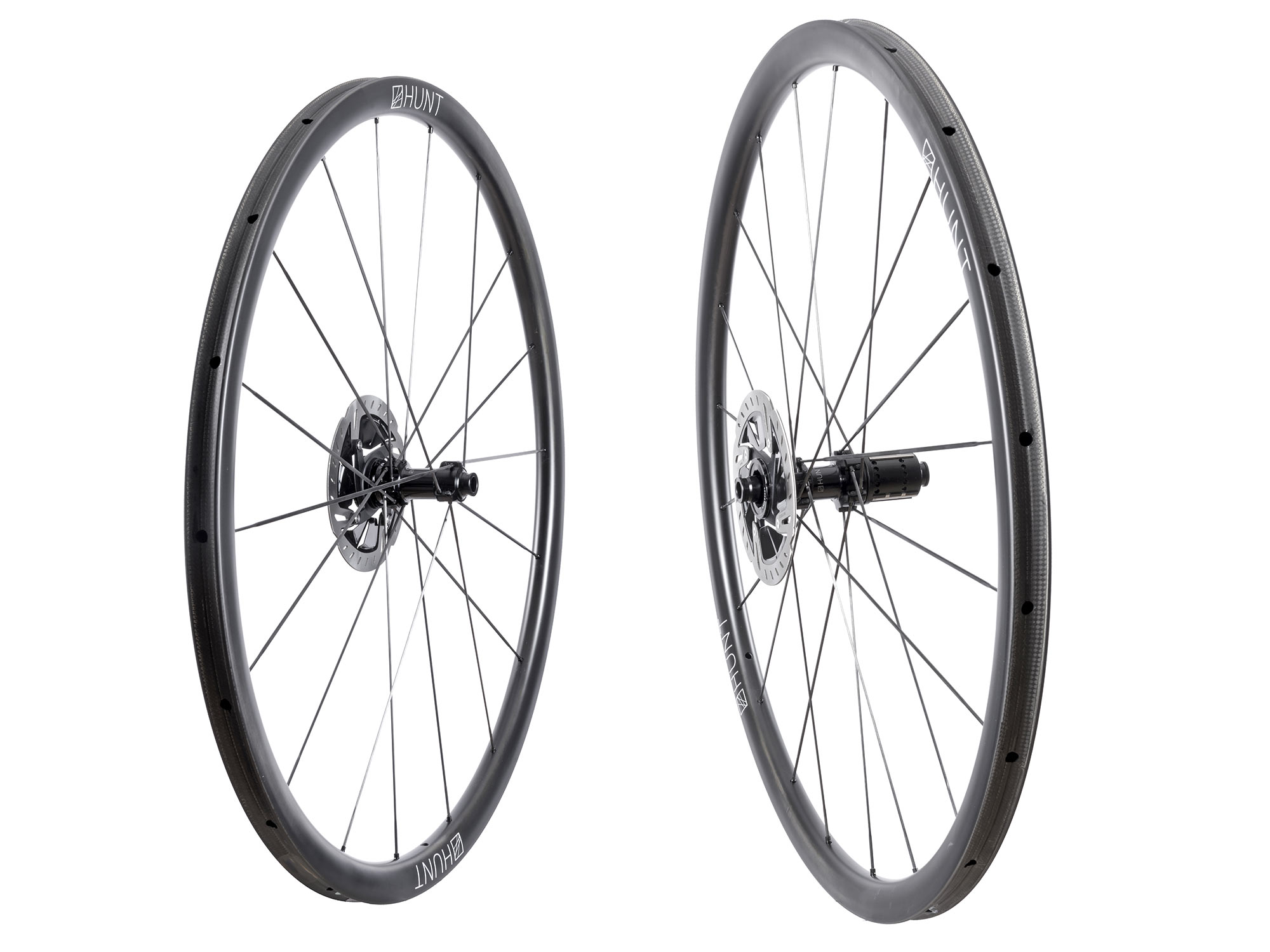
These all-new Hunt Hill Climb SL Disc wheels with carbon spokes, carbon rims & ratchet hubs are available to pre-order today for £1299 / $1699 / 1699€. You can also get a SRAM XD/XDR, Campagnolo, or Campy N3W freehub if needed.
Order a set now, and Hunt says they will deliver them from the second week of September.
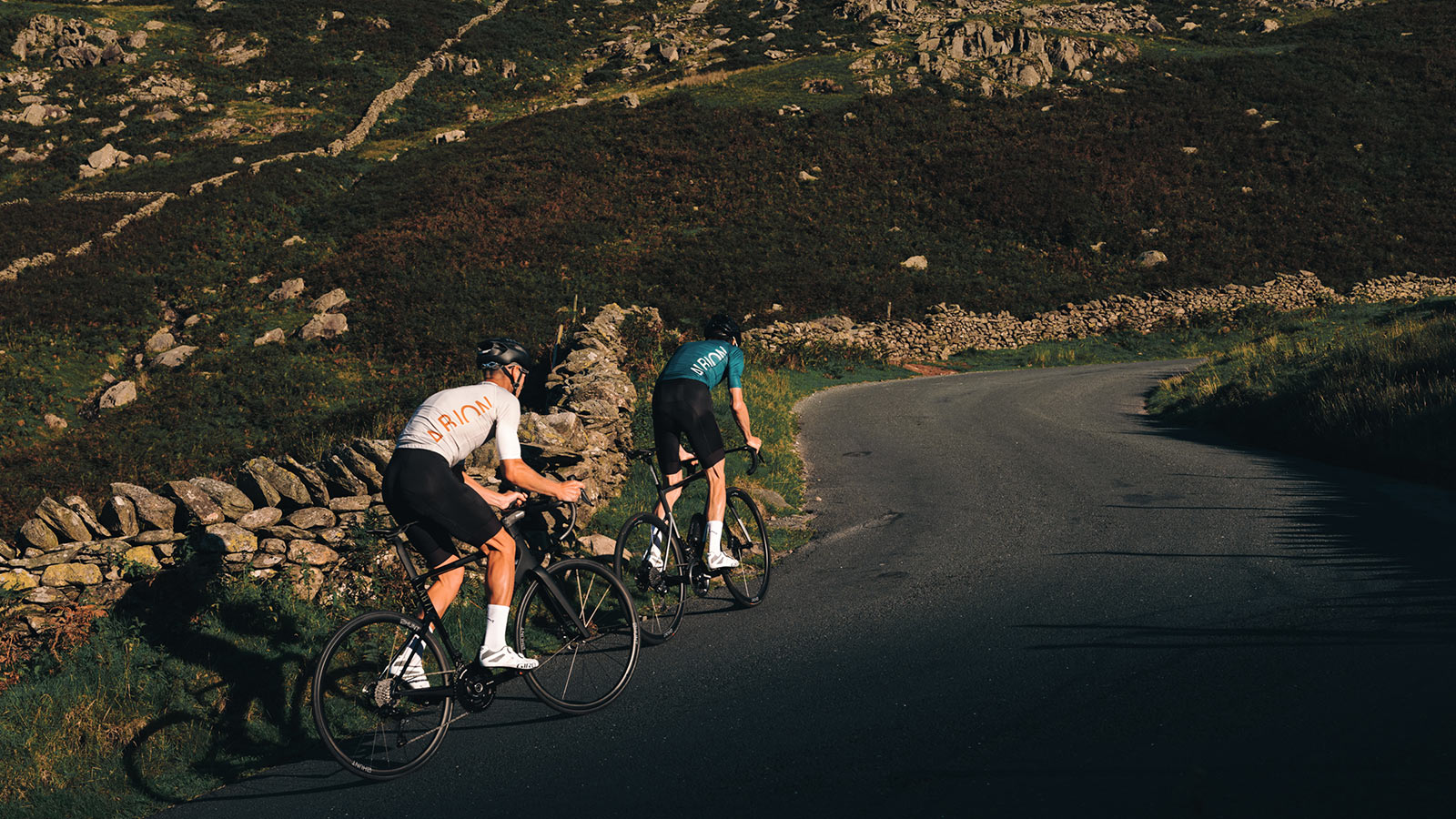
The UK’s cycling Hill Climb season is already in full swing in this second half of August. But that key national championship isn’t ’til the end of October, giving plenty of time to benefit from a new ultralight set of wheels. Plus, once the racing’s officially done, you’ll have plenty of time to hunt KOMs on all your local climbs with this sub-1000g wheelset.
